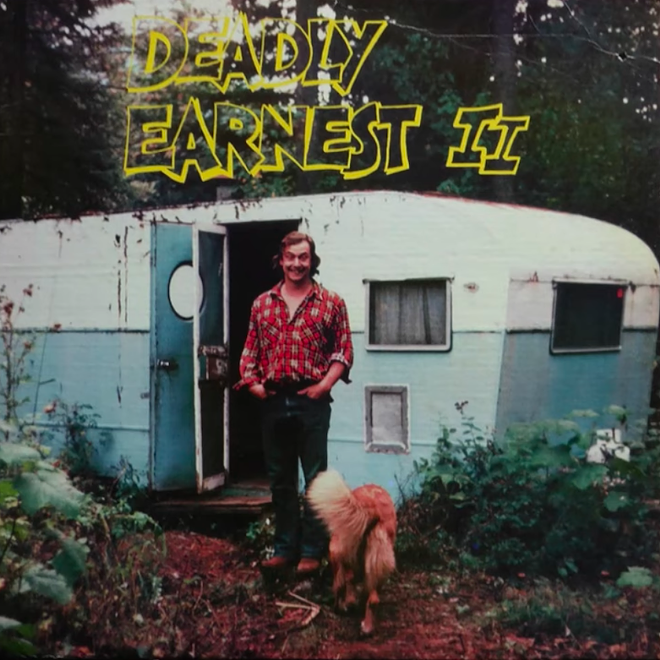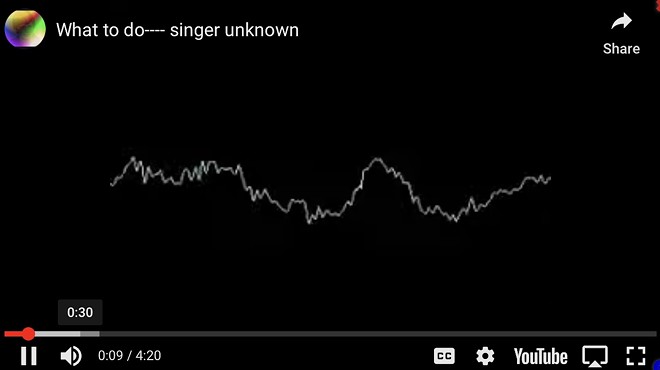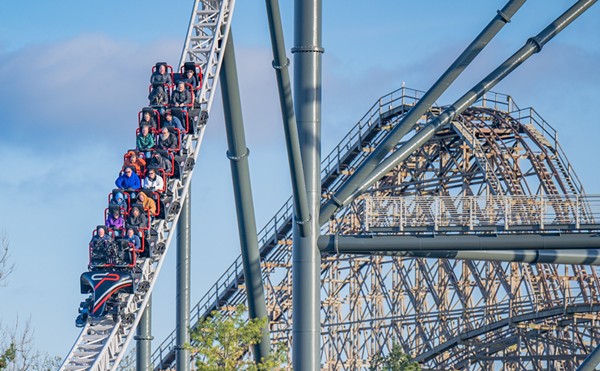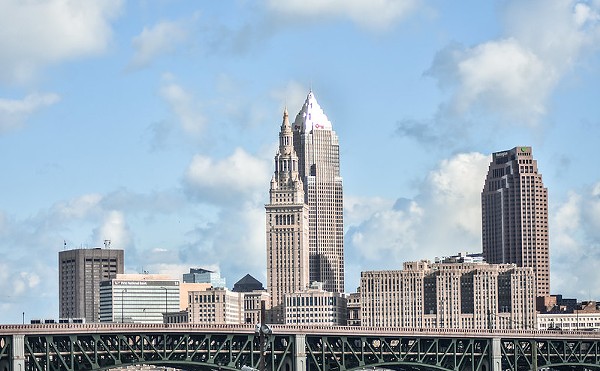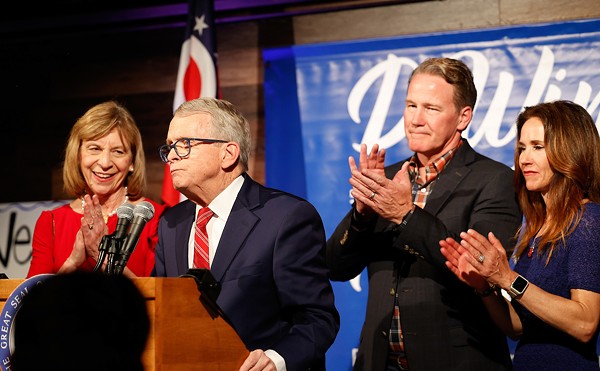The song—whose proper name and songwriter had beguiled the internet—piqued something in Richards, a 66-year-old retired musician living with his wife in Newbury.
"I played the darn thing, and I go, 'Jeez, that voice is so damn familiar. It's very distinct,'" Richards recounted to Scene. He hit the internet, and after some digging, Richards had his moment. "I was looking up local guys, this and that. And then I got on YouTube, and bam, there is was in front of me."
Richards stumbled on "Blues At Midnight," the eighth track on 1980's Deadly Earnest II, the third full-length album by the local seventies urban country outfit Deadly Earnest and the Honky Tonk Heroes.
The track, both to Richards and others of the time that may hear it, is a relic of quintessential time in Cleveland music history, when bands like the James Gang and the Michael Stanley Band flourished at different tiers of popularity. Others grew as local mainstays, a part of Cleveland lore, but didn't capture attention to be remembered beyond the era.
And it's probably nearer to the latter where Deadly Earnest falls.
Founded in 1975 in collaboration with future members of the Mr. Stress Blues Band, Deadly Earnest was the brainchild of Denny Earnest, a then-25-year-old native of Cleveland Heights. Earnest worked days at a guitar shop on East 12th Street and Euclid Ave., and garnered the nickname "Deadly" due to the potency of his hangovers.
By 1979, Earnest's talent at voice and guitar, along with his notoriety for playing high energy, multi-genre gigs at the Flip Side and the Back Door, fell on big ears. Their first two albums played on WMMS caught the attention of former Monkees guitarist Michael Nesmith, who signed on that year to help distribute Deadly Earnest II. Vinyl copies would be sold in shops in Switzerland and Japan.
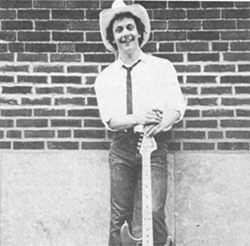
The album as a whole, produced by Danny Sheridan (former bandmate with David Allen Coe) and recorded by classical engineer Michael Bishop in Painesville, was a tour de force of Earnest's knack for blues, outlaw country and Midwestern rock and roll. It featured Alex Bevan, later known for "Skinny and drummer Greg 'G.G.' Giancola, a role model of sorts for Richards.
"G.G. was such a fabulous swing drummer, and he was so smooth," Richards recalled about a show in Newbury. "He'd sit there with a toothpick in his mout, and chew it to keep the time. It was incredible."
By the mid-1980s, Deadly Earnest was winding down. Richards wonders if the outlaw country boom—the one that blew up Waylon Jennings and Willie Nelson—passed Earnest by. In 1982, the band recorded its final album: a swan song of country rock originals.
“I’m not trying to be in the top bar band in Northern Ohio," Earnest told the Daily Kent Stater in 1983. "The reason I play in bars is to get people’s reaction to my songs. The band also pays for my writing time. There’s nothing creative about working nine to five.”
According to LinkedIn and his Spotify page, Earnest is still in music, playing a brand of raw country blues in his current residence of Livingston, Montana. His Spotify also lists a few Hollywood credits—Earnest has had songs featured in "Young Sheldon" and "It's Always Sunny in Philadelphia." (He didn't respond to multiple calls for comment.)
As for why "Blues At Midnight" is having a small but endearing resurgence, Richards can't say for certain.
"To be honest, I don't know why they didn't make it—I don't know why Michael Stanley didn't make it," he said. "But who knows? Maybe this could bring back some kind of resurgence. Everything is a pendulum, right?"
Subscribe to Cleveland Scene newsletters.
Follow us: Apple News | Google News | NewsBreak | Reddit | Instagram | Facebook | Twitter | Or sign up for our RSS Feed

